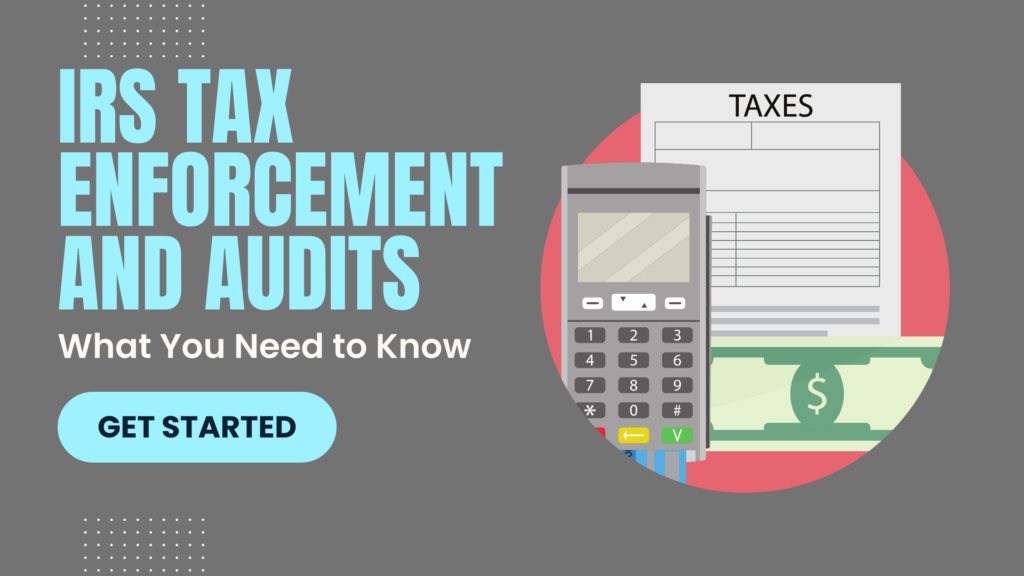
Introduction
What is IRS Tax Enforcement?
IRS tax enforcement refers to the various actions taken by the Internal Revenue Service to ensure compliance with tax laws. This includes audits, collection activities, and criminal investigations. The goal is to identify and address tax evasion and fraud, thereby ensuring that everyone pays their fair share. https://www.irs.gov/filing
Key Developments in IRS Enforcement.
Increased Funding for the IRS
Recent legislative changes have provided additional funding to the IRS to enhance its enforcement capabilities. This includes hiring more agents and upgrading technology to better detect discrepancies and potential fraud.
IRS Gets More Funding for Tax Enforcement
Focus on High-Income Individuals and Large Corporations
The IRS has signaled a shift in focus towards auditing high-income individuals and large corporations. This move aims to address complex tax avoidance strategies often employed by these groups.
IRS to Increase Audits of Wealthy Individuals and Corporations
Cryptocurrency Transactions Under Scrutiny
With the rise of digital currencies, the IRS has increased its efforts to track and tax cryptocurrency transactions. New guidelines and reporting requirements are being enforced to ensure compliance.
IRS Focuses on Cryptocurrency Tax Enforcement
What Triggers an IRS Audit?
Several factors can trigger an IRS audit, including:
- Inconsistencies in Your Tax Return: Discrepancies between reported income and actual income can raise red flags.
- High Deductions or Credits: Claiming unusually high deductions or credits compared to your income can prompt an audit.
- Random Selection: Sometimes, audits are simply a result of random selection.
How to Prepare for an IRS Audit
Keep Accurate Records
Maintain detailed records of your income, expenses, and deductions. This includes receipts, bank statements, and relevant documents.
File Your Returns Correctly
Ensure that your tax returns are accurate and complete. Double-check for any errors or omissions before filing.
Seek Professional Help
Consider hiring a tax professional to assist with your tax filings and to represent you in case of an audit. They can provide valuable insights and help navigate the process.
Conclusion
IRS tax enforcement and audits are essential tools in ensuring tax compliance and fairness. With increased funding and a focus on high-income earners, it’s crucial to stay informed and prepared. By keeping accurate records, filing correct returns, and seeking professional assistance, you can minimize the risk of an audit and handle any that do occur with confidence.
Read more for Other taxes click here
